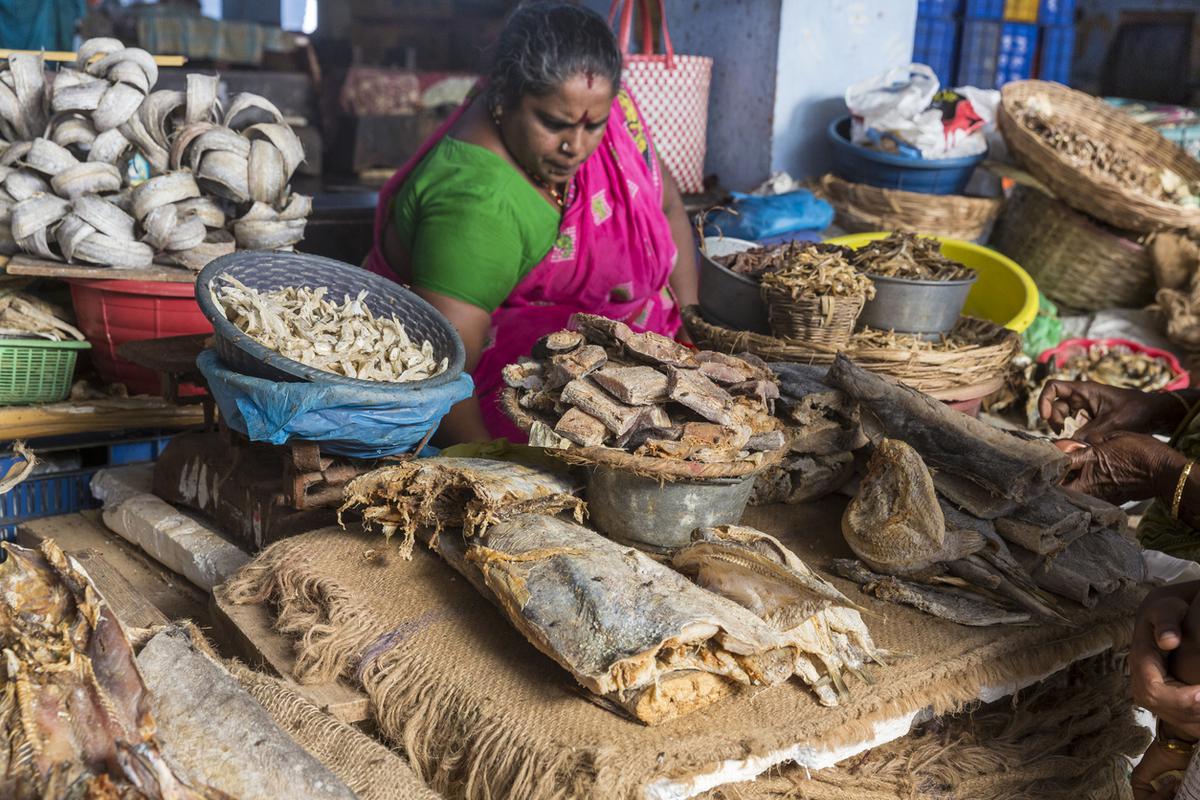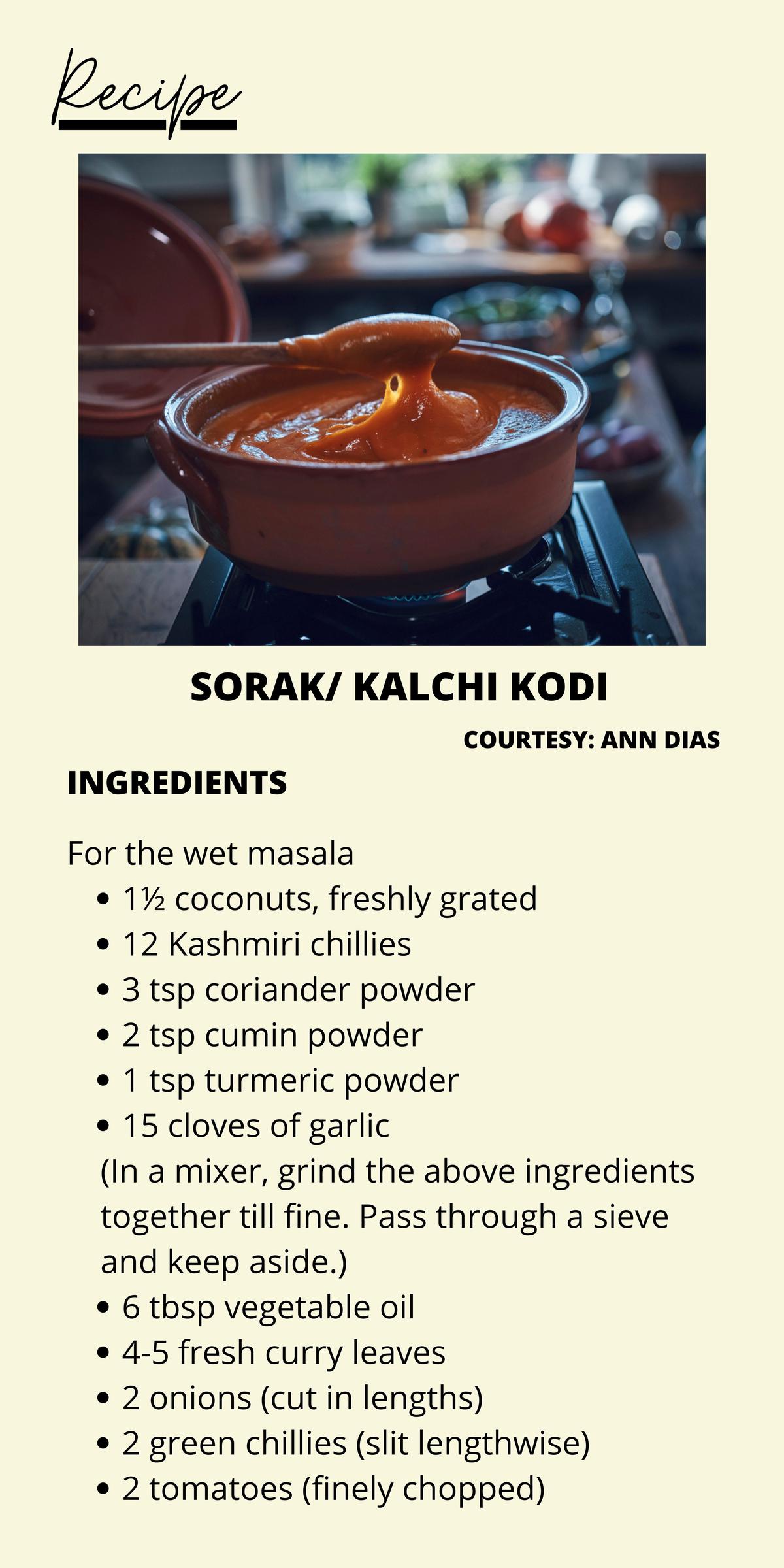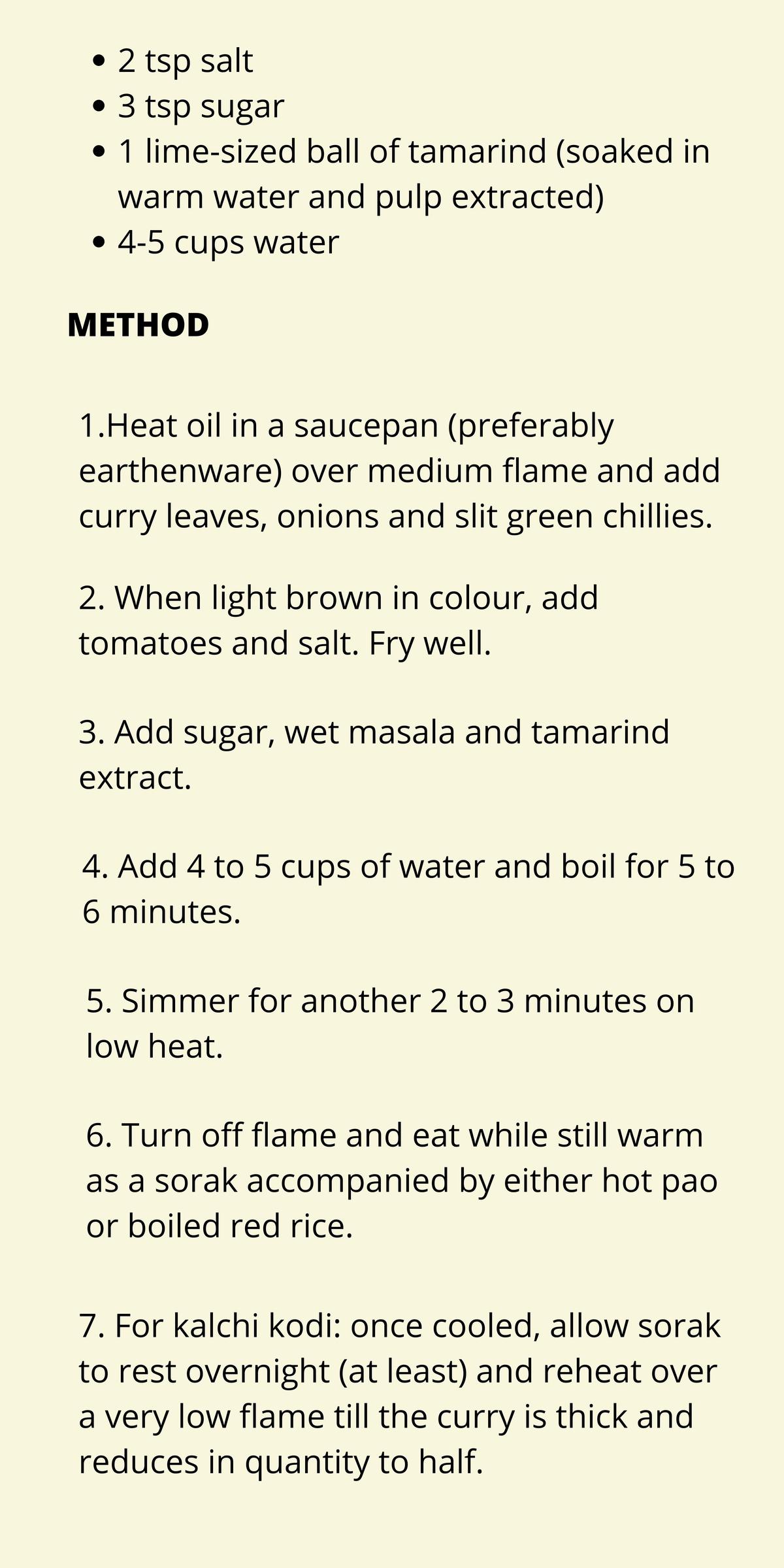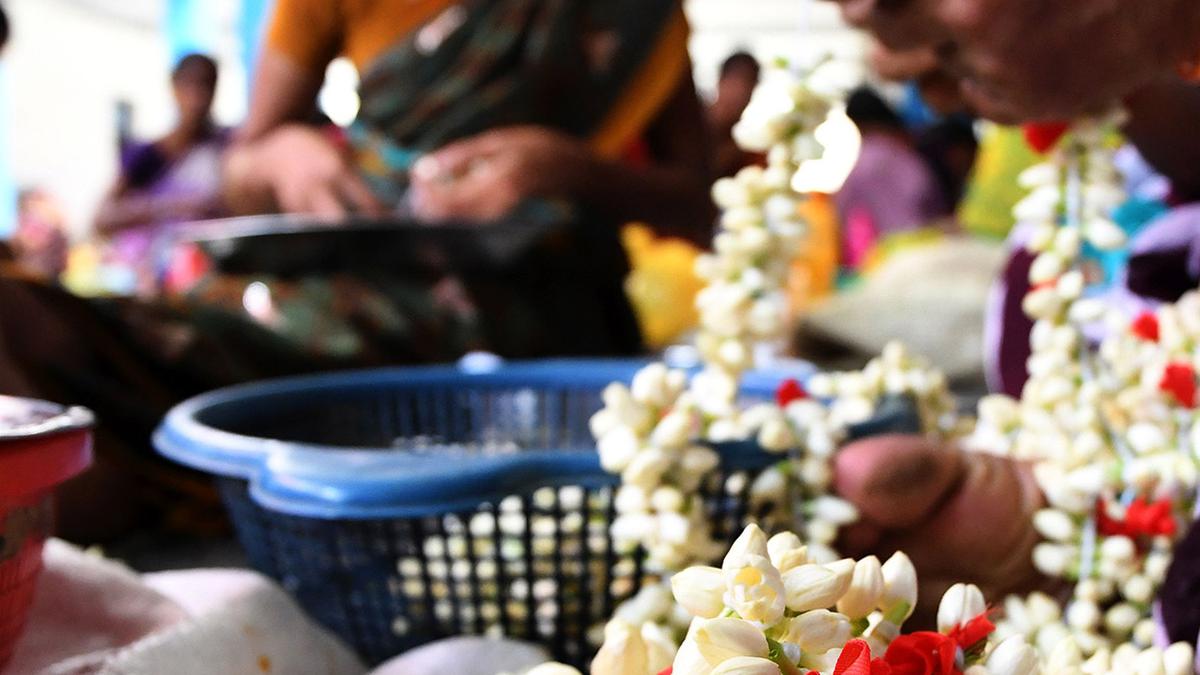The robustly flavoured, almost neon orange hued, fresh coconut-based kalchi kodi is one that matures deliciously with time and is best savoured days after preparation
The robustly flavoured, almost neon orange hued, fresh coconut-based kalchi kodi is one that matures deliciously with time and is best savoured days after preparation
I grew up in a household obsessed with any and everything that percolated from the great ‘Motherland of Goa’ to our slightly attenuated Bomaicar (Bombayite) Goan existence here in Mumbai. Never mind losing a fair bit of heft along the short, but telling journey.
Sure, my sister’s and my “native language” of Konkani was so rusty and diluted with words from the borrowed Marathi, that it was quickly relegated to the status of a fourth language. After the more practical (as my less sentimental mother put it!) English, Marathi and Hindi. But my food- and music-loving father always made it abundantly clear that the two aforementioned aspects of his brand of Goenkar-ness were not to be trifled with.
This meant that we kids were introduced to an entire phalanx of performing artists and musicians from a very early age. Be they fado and mando singers, or the rather ribald humoured teatre (Konkani theatre) artists. They all made their quotidian and unavoidable presence felt in our drawing room.
Pernickety about his food to an almost militant degree, Dad made sure our Goan food supplies never ran dry. This meant regular grocery replenishing trips to Goa. For he had a lifelong distrust of the local Goan speciality stores that dot places like Crawford Market and Dhobi Talao in South Mumbai.
The trips would entail stocking up on sur (palm vinegar), bundles of dried, salted fish, smoked choriso pork sausages, fat red rice, sollas (dried mangosteen) and pyramid-shaped black jaggery blobs. Among a truckload of other goodies purchased at the famous food market in North Goa’s Mapusa.

A woman selling dried fish at the market.
| Photo Credit: Getty Images
But there was always method and reason to his apparent ‘hoarding madness’. For you see, Goan cuisine is one of the finest examples of how preserved, pickled and even dishes cooked days in advance, far outnumber their freshly-made counterparts. Both in terms of variety and above all, depth of flavour.
And at the pinnacle of these made-yesterday-savoured- tomorrow wonders — that include the triumvirate pork fest that is the pickle-like sorpotel, the assado roast and the vinegar-imbued indiyal ( vindaloo) — is the surprisingly humble and plebeian, entirely vegan kalchi kodi. So popular is this almost neon orange-hued, fresh coconut-based curry that it even has a ditty dedicated to it. The 1969 song ‘Kalchi Kodi’ by one of Dad’s favourite singers, the legendary Alfred Rose, is a paean to this dish that I have grown up both devouring… and yes, listening to with relish!


It was a recent report by BBC Science Focus talking of how a stew or casserole tasted best after a few hours of being made or even the next day that put kalchi kodi at the forefront of my thoughts. For the very meaning of its name — kalchi kodi means yesterday’s curry in Konkani — says it all.
Though it begins life as the ubiquitous sorak — yes, the same one known pithily as “just Goan curry” — eating kalchi kodi is an experience to behold. The sorak also known as ankwar kodi (literally, “unmarried curry”) in some parts of Goa, is generally considered a monsoon dish.
This is because we otherwise fish-obsessed Goans, in general, don’t consume fresh seafood in the months without the letter ‘R’ in them — which happens to be the monsoon season. Thus, the curry is often eaten with bhende (lady’s finger) or with a piece of dried fish either plain fried or in the form of a pickle like the famous mackerel parra.
But in my opinion, this tasty sorak reaches even greater heights of deliciousness the next day when alchemy bestows it with the title of kalchi kodi. Best when left overnight (or even a couple of nights, if one can resist) to thicken in earthenware pots called khundem, a gentle simmer the next day atop a firewood-fuelled open flame is what seals the deal.
This is precisely why to this day, my family always eats kalchi kodi for breakfast. We luxuriate in its thick, unctuous flavour, best enjoyed with hot brun , pao, or poie breads, or my personal favourite, fat red rice. Making it a complete breakfast meal is the addition of egg to it. This could take the form of a boiled egg submerged in the curry’s orange depths, or a fried one (in coconut oil) sitting jauntily atop it.
Critics often lay it thick on us Goans, chiding us for our well-cultivated brand of sussegado. Loosely defined as that languorous state of mind where taking things easy and leaving seemingly important details to be dealt with the next day is almost a ritual. Maybe a generous serving of kalchi kodi will help put it all in perspective for them?
The Mumbai-based writer and restaurant reviewer is passionate about food, travel and luxury, not necessarily in that order.






